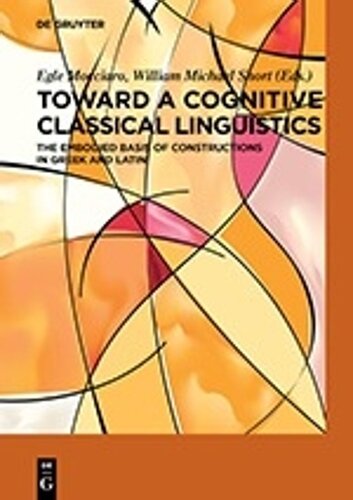

Most ebook files are in PDF format, so you can easily read them using various software such as Foxit Reader or directly on the Google Chrome browser.
Some ebook files are released by publishers in other formats such as .awz, .mobi, .epub, .fb2, etc. You may need to install specific software to read these formats on mobile/PC, such as Calibre.
Please read the tutorial at this link: https://ebookbell.com/faq
We offer FREE conversion to the popular formats you request; however, this may take some time. Therefore, right after payment, please email us, and we will try to provide the service as quickly as possible.
For some exceptional file formats or broken links (if any), please refrain from opening any disputes. Instead, email us first, and we will try to assist within a maximum of 6 hours.
EbookBell Team

4.1
80 reviewsThis volume gathers a series of papers that bring the study of grammatical and syntactic constructions in Greek and Latin under the perspective of theories of embodied meaning developed in cognitive linguistics. Building on the momentum currently enjoyed by cognitive-functional approaches to language within the field of Classics, its contributors adopt, in particular, a ‘constructional’ approach that treats morphosyntactic constructions as meaningful in and of themselves. Thus, they are able to address the role of human cognitive embodiment in determining the meanings of linguistic phenomena as diverse as verbal affixes, discourse particles, prepositional phrases, lexical items, and tense semantics in both Greek and Latin.